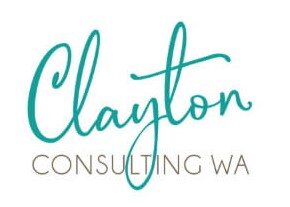Modern Slavery and Ethical Procurement: What the Western Australian Government Tenders Really Require
In December 2024, I attended a webinar on ‘identifying and addressing modern slavery in government procurement’ hosted by the Western Australian Department of Finance. These are the take-away messages I took from the webinar.
Modern slavery compliance isn't just a tick-a-box exercise, it's becoming a critical factor in winning and maintaining government contracts. It's clear that businesses must adapt their approach to stay competitive.
Understanding Modern Slavery in Government Procurement
Modern slavery refers to situations where one person has taken away another person's freedom – their freedom to control their body, their freedom to choose, to refuse certain work or to stop working – so that they can be exploited.
The Australian Government's Modern Slavery Act 2018 defines eight types of serious exploitation, including trafficking in persons, slavery, servitude, forced marriage, forced labour, debt bondage, child labour, and deceptive recruiting for labour or services.
The statistics are sobering. It is estimated that world-wide approx 50 million people are trapped in modern slavery, with 28 million in forced labour and 22 million in forced marriage. (Source: The 2023 Global Slavery Index/ by Walk Free)
The Regulatory Landscape
The Commonwealth's Modern Slavery Act 2018 requires Australian organisations with consolidated revenue of $100 million or more to report annually on modern slavery risks within their operations and supply chains. However, three years after being enacted, the MS Act was reviewed and found the law had "not yet caused meaningful change" for people living with modern slavery.
This has led to significant proposed changes, including:
Civil penalties for non-compliance
New mandatory reporting criteria
Increased due diligence requirements
Written declarations covering high-risk regions, industries, products, and suppliers
“NB: Most of the tenders I’ve worked on since 2023 has required us to study our supply chain to identify areas of high risk re: modern slavery. We’ve also had to obtain letters from our suppliers certifying that modern slavery was not involved in producing the goods. ”
How the Modern Slavery Act 2018 Impacts Your Government Tender Strategy
Risk Assessment is Critical! When preparing tender responses, you must now consider four key risk categories:
-
Countries with higher risks of modern slavery include China, Eritrea, India, Mauritania, North Korea, Pakistan, Saudi Arabia, United Arab Emirates, Kuwait, Türkiye, Russia and Tajikistan (Source: The 2023 Global Slavery Index/ by Walk Free). According to the index two-thirds of all forced labour cases are linked to global supply chains. As such, if your supply chain touches these regions, expect increased scrutiny.
-
High-risk sectors include agriculture, construction, fishing, food, hospitality, manufacturing, recruitment, resource and energy. These industries face additional compliance requirements.
-
High-risk products include bricks, Brazil nuts, carpets, cattle, coal, cocoa, coffee, cotton, diamonds, electronics, fish, garments, gold, palm oil, rice, shrimp, solar panels, stones, sugarcane, textiles, thread/yarn and timber.
-
Suppliers with poor governance structures, complex supply chains, or previous compliance issues face heightened scrutiny.
Practical Tender Preparation Steps
The WA Department of Finance webinar outlined a three-stage approach that winning tenderers must follow:
-
Research where your products/services are produced
Review published Modern Slavery Statements of key suppliers
Consult stakeholders about alternative goods/services if high-risk options are identified
Assess your supply chain exposure across all tiers (not just direct suppliers)
-
Government tenders now routinely include questions such as:
"Is your organisation covered by the Modern Slavery Act 2018?"
"How is your organisation identifying and managing modern slavery risks in its supply chain?"
"What actions is your organisation taking to address modern slavery risk?"
-
Successful tenderers must embed modern slavery clauses into their contracts, including:
Compliance with all applicable laws
Reasonable steps to identify, assess, and address modern slavery risks
Modern Slavery Risk Management Plans for high-risk procurements
Regular reporting requirements
Red Flags That Tender Evaluators Look For:
Government agencies are training their procurement teams to identify modern slavery indicators such as:
Employees living at the workplace
Underpayment, excessive hours, or withheld pay
Employees confined, isolated, or guarded
Third-party management of employee finances
Inability to terminate employment
False or withheld travel/personal documents
Uninformed employees about employment terms
Visa requirement breaches
Practical Actions for Tender Success
-
Create systems to assess and track supplier risks across your entire supply chain.
-
Train your procurement team and stakeholders on modern slavery identification and management.
-
Embed modern slavery considerations into every tender response and supplier evaluation.
-
Be patient. Don't cut out suppliers who don't know what they're doing yet. Work with them to improve compliance.
-
Establish fit-for-purpose systems to monitor and report on modern slavery risks.
Your Competitive Advantage
Modern slavery compliance is no longer optional for government contractors. It's a fundamental requirement that's becoming more sophisticated and strictly enforced. The businesses that understand this shift and implement robust compliance frameworks will have a significant competitive advantage.
As the WA Department of Finance webinar emphasized, mature organisations recognise it's not if you find modern slavery in your supply chain but when. The key is being prepared with systems, processes, and partnerships that demonstrate your commitment to ethical procurement.
Moving Forward
The integration of modern slavery considerations into government procurement represents a fundamental shift toward ethical sourcing. For businesses serious about winning government contracts, this isn't just about compliance, it's about demonstrating corporate responsibility and supply chain transparency.
The message from the WA Department of Finance is clear: modern slavery risk management must be embedded into every stage of your procurement process. Those who adapt quickly will find themselves well-positioned for the evolving landscape of government contracting
Need help navigating modern slavery compliance in your next government tender?
At Clayton Consulting WA, we specialise in helping businesses develop robust ethical procurement strategies that win contracts while maintaining the highest standards of corporate responsibility. Contact us to discuss how we can help your business stay ahead of evolving compliance requirements.
